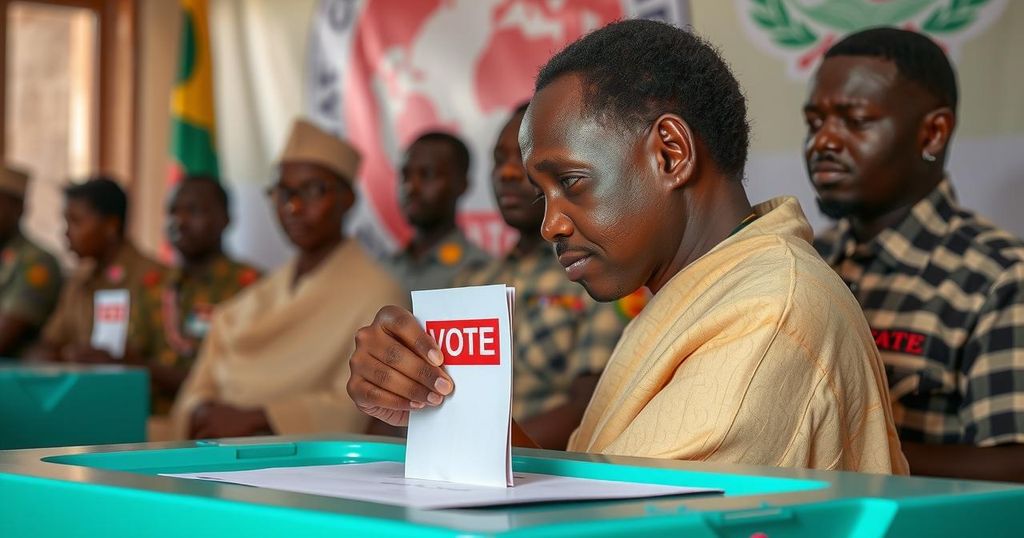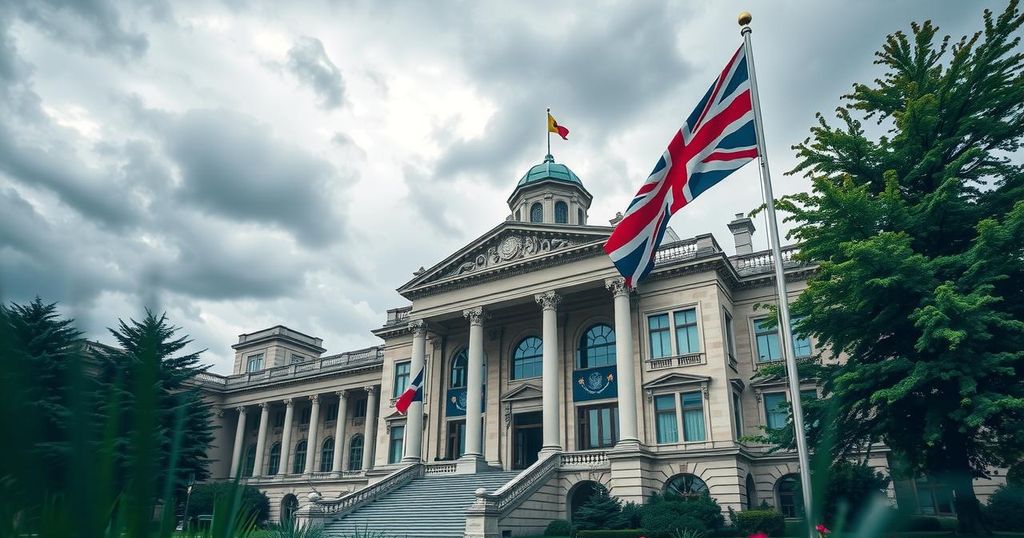Low Voter Turnout Marks Chad’s Parliamentary Elections Amid Opposition Boycott
Chad’s parliamentary elections faced low voter turnout due to opposition boycotts amid allegations of an unfair electoral process. Military leader Mahamat Idriss Deby, who recently secured a disputed presidential victory, emphasized the elections as a step towards decentralization. Despite being viewed as pivotal for Chad’s future democracy, skepticism about the electoral integrity prevails, especially among opposition parties who criticized the elections as a mere façade for maintaining power.
Chad held parliamentary and regional elections on Sunday with a notably low voter turnout, marking the end of a three-year transitional period from military rule. The elections were boycotted by the main opposition parties, which alleged a lack of credible oversight by the authorities. This parliamentary election, the first in over a decade, follows military leader Mahamat Idriss Deby’s disputed presidential victory earlier this year, which aimed to restore democracy. Despite the low turnout, Deby expressed hope that the election would facilitate a long-awaited decentralization of governance in Chad, a nation with a history of undemocratic transitions since gaining independence in 1960. The results from this election are expected to be announced in about two weeks, although skepticism remains regarding the electoral process, particularly from the Transformers party, which raised concerns over potential result tampering. The political landscape remains fragile as Chad contends with security challenges and seeks to navigate a return to democratic governance after years of military oversight.
Chad is a Central African nation struggling with political instability and economic challenges. After the death of long-time president Idriss Deby Itno in 2021, his son, Mahamat Idriss Deby, assumed power and led the country through a transitional military government. This transitional phase has included discussions on national dialogue, constitutional amendments, and a postponed return to civilian governance. The recent elections represent a significant moment in Chad’s political journey, particularly because they are the first after over a decade of parliamentary inactivity and are set against a backdrop of widespread opposition to perceived electoral malpractice.
The parliamentary election in Chad is significant as it aims to transition the nation towards democracy after years of military rule. However, widespread opposition boycotts and accusations of electoral impropriety overshadow the event. The low voter turnout reflects public skepticism towards the electoral process, indicating challenges ahead for establishing a stable democratic system in Chad. Ultimately, the future of Chad’s governance may depend on the willingness of its leaders to genuinely engage with opposition voices and foster an inclusive political environment.
Original Source: apnews.com




Post Comment